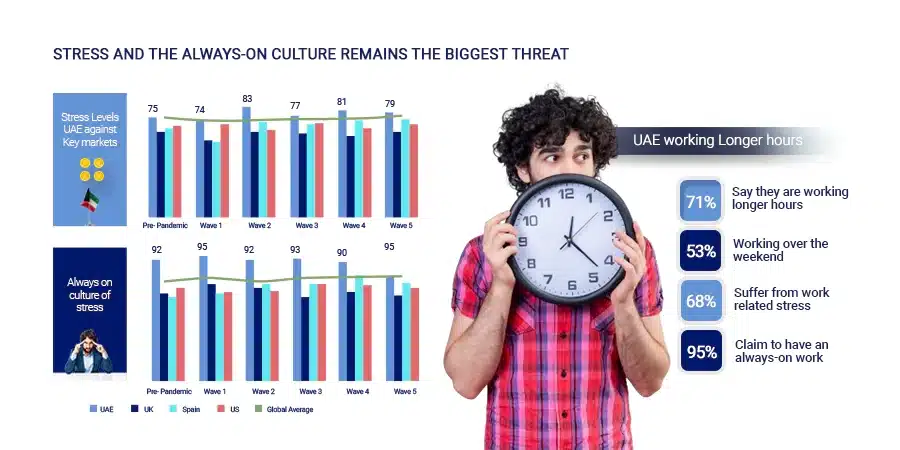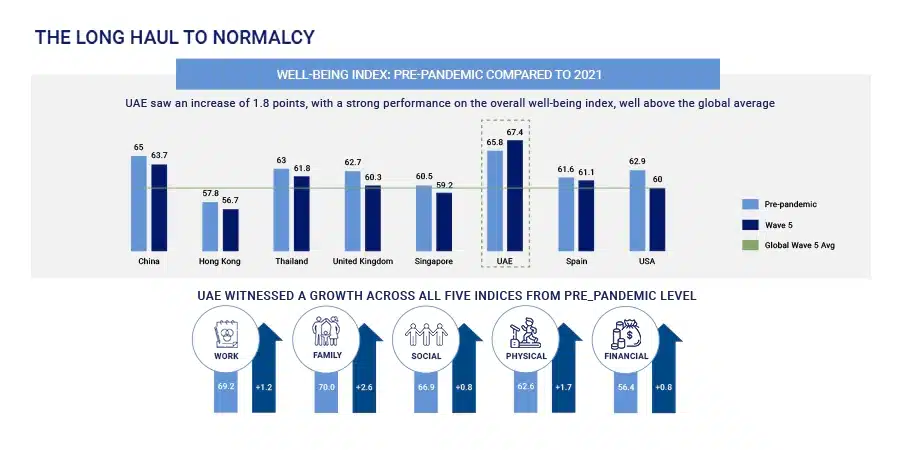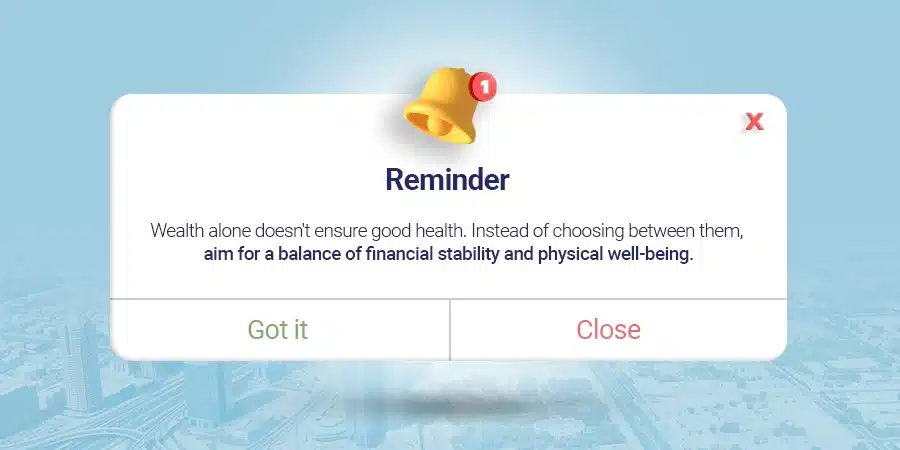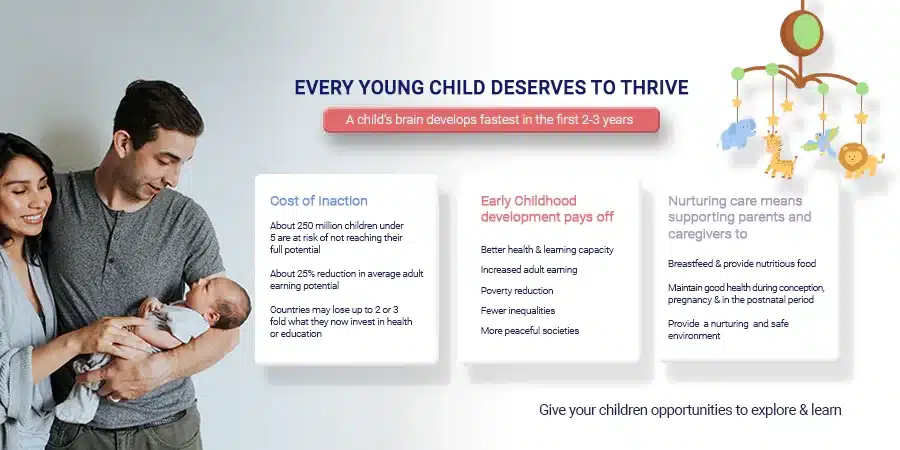Can wealth always trump health? This age-old question has been the subject of much debate, particularly in today’s fast-paced and success-driven world.
In this blog post, we will delve into various aspects that contribute to the ongoing discussion surrounding whether wealth is indeed more important than good health.
We’ll investigate the link between wealth and longevity, how poverty affects access to healthcare, and stress’s effect on optimal health.
Furthermore, we will examine systemic issues like discrimination in healthcare systems and how healthier societies are often found in less unequal nations.
As we navigate through these complex subjects, our aim is to provide a comprehensive understanding of why both wealth and health are essential for a fulfilling life.
Lastly, we will discuss policies aimed at narrowing the wealth gap for improved optimal health along with tips on achieving a balance between accumulating financial resources and maintaining better health.
So join us as we dissect this intriguing question: Is wealth truly better than health?
The Correlation Between Wealth and Longevity
Let’s dive into an intriguing question: is wealth better than health?
To answer this, we need to explore the relationship between wealth and longevity.
Research has shown that individuals with higher incomes tend to live longer, experience fewer chronic diseases, and maintain optimal health into old age.
Factors Contributing to the Link Between Wealth and Longevity
So, what factors contribute to this correlation?
- Better access to healthcare services for those with higher income levels
- The ability of wealthy individuals to afford a healthy lifestyle (e.g., gym memberships, organic food)
- A stronger social support network among those from affluent backgrounds.
Impact of Poverty on Healthcare Access and Quality
Poverty can have a considerable effect on an individual’s overall health condition.
- Limited access or inability to afford quality healthcare may lead to ill health equity, subpar treatment options, or delayed care altogether
- Poor living conditions in impoverished areas can exacerbate existing health issues or create new ones due to environmental hazards
In essence, there seems to be a strong connection between financial standing and life expectancy. However, does it mean wealth always outweighs health? Let’s dig deeper.
“Higher-income levels tend to lead to longer life and better health.
The Debate: Is Wealth More Important Than Healthiness?
The discussion of whether wealth or health is essential has been going on for a long time, and both sides make reasonable points.
On one hand, having wealth can provide access to quality healthcare, nutritious food, and safe living conditions – all play a major role in good health.
On the flip side, health is invaluable and cannot be acquired like you spend money on things. It allows us to enjoy life to the fullest and pursue our passions without limitations.
The Importance of Health Equity
However, it’s important to acknowledge that not everyone has equal access to good health. Those living in poverty or facing systemic barriers may experience ill health outcomes due to a lack of access to quality healthcare, nutritious food, and safe living conditions.
Research has indicated that poverty can have a long-term effect on health outcomes, with its effects being passed down through generations.
Unborn children of parents living in poverty are more likely to suffer from developmental issues as they grow up.
pros
- Fair resource distribution
- Improved overall health
- Reduced healthcare costs
- Social justice and rights
- Enhanced social cohesion
cons
- Resource allocation challenges
- Resistance to change
- Limited healthcare workforce
- Data and measurement issues
- Intersectionality complexities
Addressing Social Inequalities in Healthcare
The root cause of this issue lies in the social inequalities faced by those living below the poverty line. Poor healthcare, nutrition, and housing conditions all contribute to poorer health outcomes among disadvantaged populations, further exacerbated by systemic racism.
To make matters worse, systemic racism often exacerbates these disparities even further for certain groups. This results in an even greater divide when it comes to accessing essential resources like good healthcare and higher earning opportunities – both crucial factors for overall well-being and life expectancy.
What Can We Do?
- Educate Yourself: Learn about how social inequalities affect health equity, mental health, and chronic illness rates within marginalized backgrounds. Knowledge is power.
- Create Awareness: Share your newfound knowledge with friends, family members, or colleagues who may not be aware of these pressing issues. Start conversations around the importance of addressing social inequalities in healthcare.
- Support Local Initiatives: Get involved with organizations working to improve access to quality healthcare, education, and housing for disadvantaged populations. Your time and resources can make a real difference.
In order to break the cycle of poor health outcomes related to socioeconomic status, it’s essential that we address these disparities head-on.
By understanding the root causes and taking actionable steps towards change, we can work together towards creating a healthier future for all generations – regardless of their wealth or background.
pros
- Improved health outcomes
- Enhanced system efficiency
- Mitigated preventive care disparities
- Reduced healthcare costs
- Healthier, more productive population
cons
- Resistance to change
- Complex systemic issues
- Political and policy challenges
- Cultural competence and biases
- Long-term impact
Key takeaways
The debate on whether wealth or health is more important has valid arguments on both sides. While having wealth can provide access to quality healthcare, good health is priceless and cannot be bought with money. It’s essential to address social inequalities in healthcare by educating ourselves, creating awareness, and supporting local initiatives for disadvantaged populations.
Stress Levels Among Rich and Poor Populations
Though tension and anxiety can have detrimental effects on our optimal health, the rich and poor experience them in distinct ways. However, both the rich and poor experience anxiety and tension in different ways.
According to research, chronic stress without reprieve can diminish our overall quality of life, regardless of socioeconomic background.
Lack of Food Security or Inadequate Housing Causing Stress and unexpected challenges for Those Living Below the Poverty Line
Factors contributing to poverty like food insecurity and inadequate housing are prevalent among those living below the poverty line.
The anxiety caused by poverty can lead to both physical and mental health issues, such as depression and anxiety.
Actionable Tips for Reducing Stress When Facing Financial Hardships:
- Create a budget: Knowing where your money is going can help alleviate financial worries. Use free budgeting tools like Mint.
- Find support groups: Connecting with others facing similar challenges can provide emotional support. Look into local community organizations or online forums such as Low Earning Relief.
- Maintain healthy habits: Prioritize self-care, exercise regularly, and eat a balanced diet. Check out ChooseMyPlate for nutrition tips.
pros
- Increased awareness and advocacy
- Health promotion
- Poverty alleviation
- Reduced healthcare costs
- Community resilience
cons
- Limited resources and funding
- Complex systemic issues
- Stigma and discrimination
- Interconnected challenges
- Time lag in the impact
The Wealthy Are Not Immune to Stress Either
Affluent individuals may face different factors such as work-related pressures, financial stress, or maintaining social status.
Mental health issues like anxiety and depression, which are just as detrimental to well-being as the effects of poverty on the human mind, can result from the pressures of maintaining wealth or social status.
Actionable Tips for Managing Stress Among the Affluent:
- Set boundaries: Learn when to say no and prioritize your own optimal wellness over external demands. Read books like “Boundaries: When To Say Yes, How To Say No” by Drs. Henry Cloud & John Townsend.
- Maintain a healthy work-life balance: Schedule regular downtime and engage in hobbies outside of work. Consider exploring mindfulness practices with apps like Headspace.
- Give back: Volunteering or donating time, money, or resources can help alleviate feelings of guilt associated with luxury while providing perspective on life’s priorities. Explore opportunities at websites like VolunteerMatch.
pros
- Empathy and understanding.
- Mental health awareness.
- Holistic well-being.
- Addressing underlying factors.
cons
- Perception of privilege.
- Stigma and expectations.
- Barriers to seeking support.
- Unique stressors.
- Inequality in access to resources.
Key takeaways
Stress affects both the rich and poor, with poverty-related stressors leading to physical and mental health issues. Creating a budget, finding support groups, and maintaining healthy habits can help alleviate financial worries for those facing hardships. Affluent individuals may face different stressors such as work-related pressures or maintaining social status but setting boundaries, maintaining a healthy work-life balance, and giving back can help manage their tension levels.
Less Unequal Societies Boast Enhanced Healthiness Outcomes
Let’s dive into the fascinating globe of income disparities and their impact on wellness.
Did you know that communities with smaller income gaps tend to have healthier populations? Research shows that these societies experience higher childhood immunization rates, lower addiction prevalence, and overall better optimal health.
Click here to read the research.
Higher Educational Achievement Rates Within These Societies
In less unequal societies, access to quality education is more widespread. Higher educational achievement rates in less unequal societies lead to improved mental health and longer life expectancy for all.
pros
- Economic growth and innovation
- Improved employment opportunities
- Health literacy and Self-care
- Social Mobility and Equality
cons
- Educational disparities
- Financial burden
- Overemphasis on academic success
- Skills gaps and unemployment
Importance of Reducing Inequality for Promoting Both Healthy and Wealthy
The link between wealth and health outcomes is undeniable. However, how can we address this issue?
Policies aimed at narrowing wealth gaps are crucial not only for individual well-being but also for national economic growth through increased productivity levels among citizens who enjoy improved access to quality healthcare services alongside better education opportunities overall.
Impact of Policies on Health and Wealth Disparities
Governments must acknowledge the necessity of implementing policies that aid in the equitable distribution of resources, such as progressive taxation systems or social safety nets like universal healthcare and cost-effective housing.
Strategies for Promoting Equal Access to Resources
An effective way to tackle inequality is through investing in early childhood development programs, which have been shown to positively influence long-term educational outcomes and future earning potential.
UNICEF highlights the importance of providing adequate nutrition, healthcare, and learning opportunities during crucial developmental stages for all children.
In conclusion, addressing wealth disparities can lead to healthier societies with better access to resources such as education and healthcare – ultimately benefiting everyone involved. Let’s work together towards a more equal world.
Key takeaways
People with smaller income gaps tend to have healthier populations and higher educational achievement rates. Policies aimed at reducing wealth disparities, such as progressive taxation systems or social safety nets like universal healthcare coverage, are crucial for promoting both health and wealth. Investing in early childhood development programs is an effective strategy for promoting equal access to resources.
Policies Aimed at Narrowing Wealth Gaps Improve Well-being
Fear not, for we shall unravel the complexities of policies and their effects on health and wealth disparities in a captivating manner.
Let’s explore this further and see how policies can play a role in closing the wealth and health gap.
Impact of Policies on Health and Wealth Disparities
Did you know that certain regulations can be used to lessen the difference between those with more and less wealth?
According to the World Health Organization (WHO), well-designed policies have the potential to improve overall health while also promoting economic growth. This is pretty amazing, right?
Strategies for Promoting Equal Access to Resources
You might be wondering how exactly these policies work. Here are some strategies:
- Educational Opportunities: By providing equal access to quality education, we empower individuals with the knowledge and skills necessary for higher-income jobs later in life.
- Affordable Healthcare: Ensuring affordable healthcare services means everyone gets proper treatment without worrying about financial constraints – which ultimately leads to good health outcomes across all socioeconomic backgrounds.
- Social Protection Programs: Implementing social protection programs such as unemployment benefits or child support can provide much-needed assistance during difficult times, helping families maintain stability despite economic challenges they may face along their journey towards achieving greater prosperity together over time.
All these strategies contribute significantly towards narrowing wealth gaps within societies, ultimately leading to improved optimal health for everyone involved.
It’s time to spread the word and advocate for policies aimed at reducing wealth disparities. Together, we can create an earth where good health and higher income are not just for the privileged few, but for everyone.
Let’s work towards a future where health care, mental health, and children’s health are not compromised due to poor health equity.
pros
- Equality and fairness
- Improved social outcomes
- Increased productivity
- Reduced social disparities
- Sustainable development
cons
- Resources allocation challenges
- Resistance to change
- Limited resources
- Unintended consequence
Key takeaways
Well-designed policies can help bridge the wealth gap and improve overall well-optimal wellness while promoting economic growth. Strategies like equal access to quality education, affordable healthcare, and social protection programs contribute significantly towards narrowing wealth gaps within societies. It’s time to advocate for policies aimed at reducing wealth disparities so that everyone can achieve greater prosperity together over time.
Investing in Early Childhood Development Programs: A Game Changer for Wealth and Healthiness Disparities
Let’s talk about the future. Specifically, let’s discuss how investing in early childhood development programs can be a powerful tool to address wealth and health disparities among disadvantaged populations.
Are you ready? Let’s dive into this transformative strategy.
Providing Adequate Nutrition and Healthcare During Crucial Developmental Stages
The first few years of livelihood are critical for brain development, physical growth, and overall optimal wellness.
Proper nutrition, access to healthcare services, and stimulating environments during these formative years set the stage for long-term success both academically and economically.
Unfortunately, poor children often lack these essential resources. However, targeted interventions can change that narrative.
pros
- Improved health outcomes
- Long-term benefits
- Early intervention and prevention
- Reduction of health disparities
- Inter-generational impact
cons
- Resource constraints
The Role of Government Support in Improving Life Trajectories
Governments play a crucial role in leveling the playing field by providing funding and support for early childhood development initiatives targeting low-income families or impoverished regions.
Research shows that such investments yield significant returns not only on individual outcomes but also on societal benefits like reduced crime rates, increased productivity levels, and higher income earnings later down the line.
A definite advantage for all.
Actionable Steps Towards Investing In Our Children’s Future:
- Create comprehensive policies addressing poverty-related barriers to proper nutrition and healthcare access for young children.
- Expand early childhood education programs to reach more disadvantaged families, ensuring equal opportunities for all children regardless of their socioeconomic background.
- Promote community-based initiatives that provide resources and support to parents in need, empowering them with the tools necessary to foster healthy development in their children.
Investing in early childhood development is not only a smart economic move but also a moral imperative. It’s time we prioritize our future generations’ health and wealth.
Together, let’s work towards creating a world where every child has an equal chance at success.
Key takeaways
Investing in early childhood development programs can be a powerful tool to address wealth and health disparities among disadvantaged populations. Adequate nutrition, access to healthcare services, and stimulating environments during the formative years set the stage for long-term success both academically and economically. Governments play a crucial role in leveling the playing field by providing funding and support for early childhood development initiatives targeting low-income families or impoverished regions.
Conclusion
Overall, the correlation between wealth and healthiness is complex. Although more money can enable access to improved healthcare and decrease stress, poverty, discrimination, and racism may have adverse effects on one’s health.
Additionally, striving for a balance between accumulating wealth and maintaining healthiness is crucial for long-term success.
In conclusion, it’s important to recognize that wealth alone cannot guarantee good health. Rather than deciding between the two, individuals should strive for a harmony of fiscal steadiness and physical health.
If you’re looking for more advice in achieving this balance or need help managing your finances effectively while also investing in your health, consider working with Quadra Wealth.
Our team of experienced advisors can help you create a personalized plan that aligns with your unique goals and needs. Let us help you create a plan tailored to your specific goals and needs – reach out today!
FAQ
Does wealth is better than health?
While wealth is not necessarily more important than healthiness, it can provide access to better healthcare and living conditions, which may lead to improved optimal health and longevity. However, it is important to strike a balance between accumulating wealth and maintaining good health.
Does Wealth Lead to Enhanced Health?
Yes, according to studies, wealthier individuals generally have better access to healthcare services, healthier lifestyles, and lower anxiety levels compared to those with fewer financial resources. These factors contribute positively to their overall physical and mental well-being.
Who is Healthier: The Rich or the Poor?
Research shows that richer individuals tend to be healthier due in part to their ability to afford quality healthcare services, live in safer environments, maintain healthy diets, exercise regularly, and experience fewer chronic stress-related issues.
Wealth provides individuals with financial security, enabling them to access higher quality education opportunities for themselves and their children, enjoy a comfortable lifestyle including proper nutrition and housing, and support various life goals such as retirement planning or starting a business venture.













